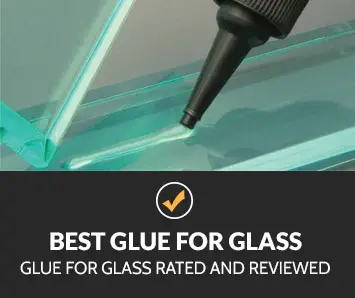Gluing glass together may sound very easy, but the fact of the matter is that you do need the right kind of glue or adhesive.
Whether you want to make your own crafts with glass, fill a crack in a glass table, or glue together your favorite wine glass, without the right product, it just cannot be done. Well, this is what we are here for today, to help you find the best glue for glass on the market.
| Image | Product | Features | Price |
Our Pick1 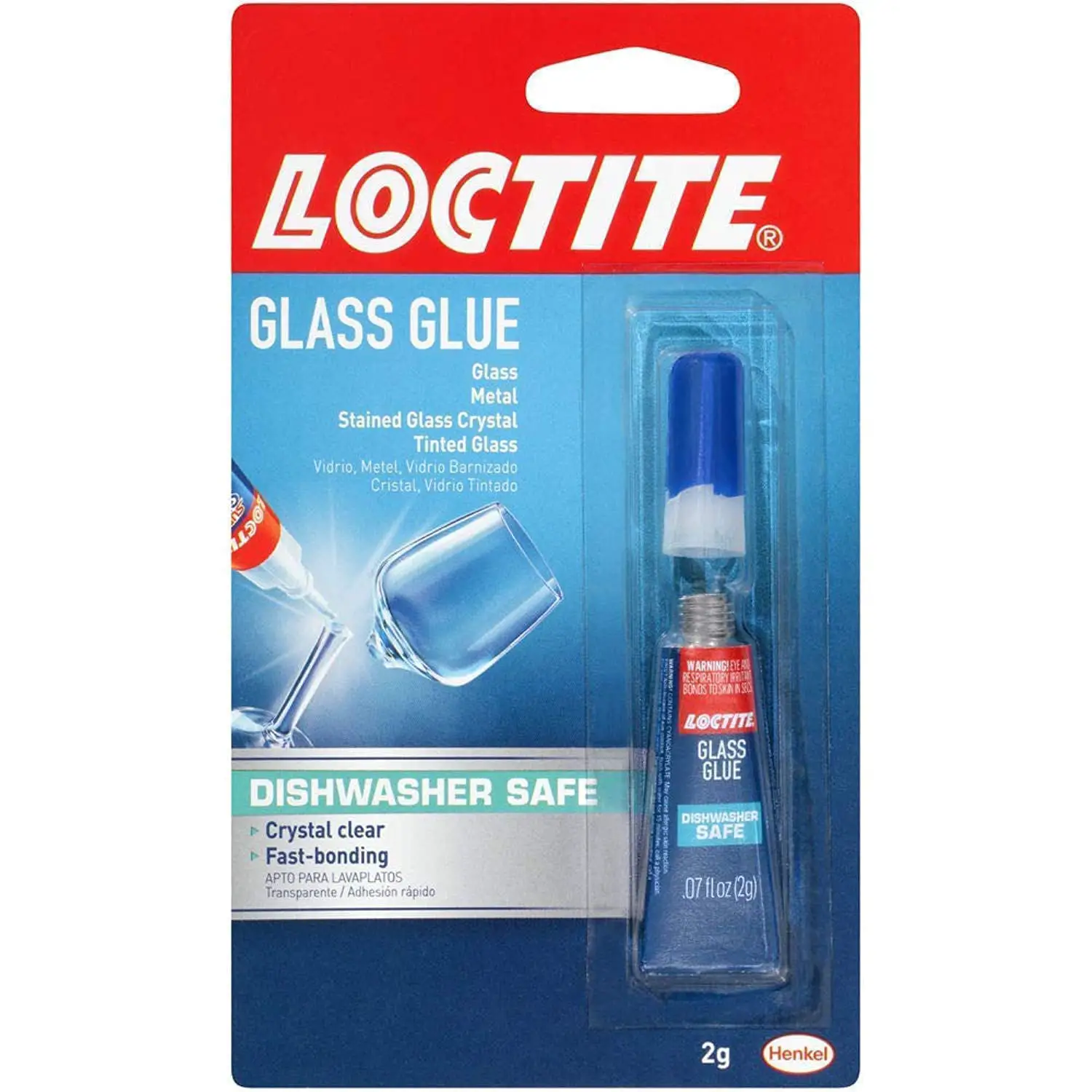 | Loctite Glass Glue | Product Features | |
2 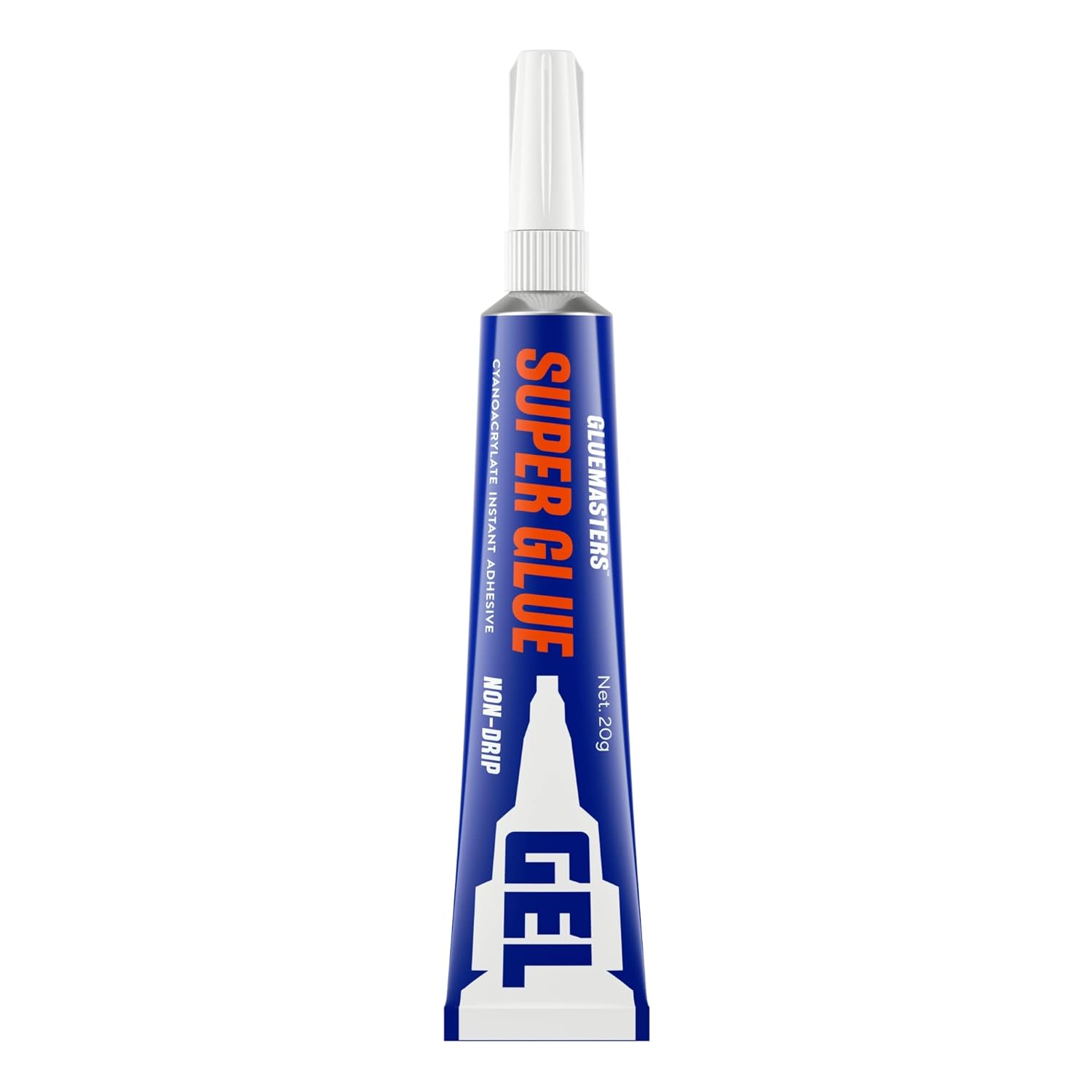 | Glue Masters Professional Grade Cyanoacrylate | Product Features | |
3 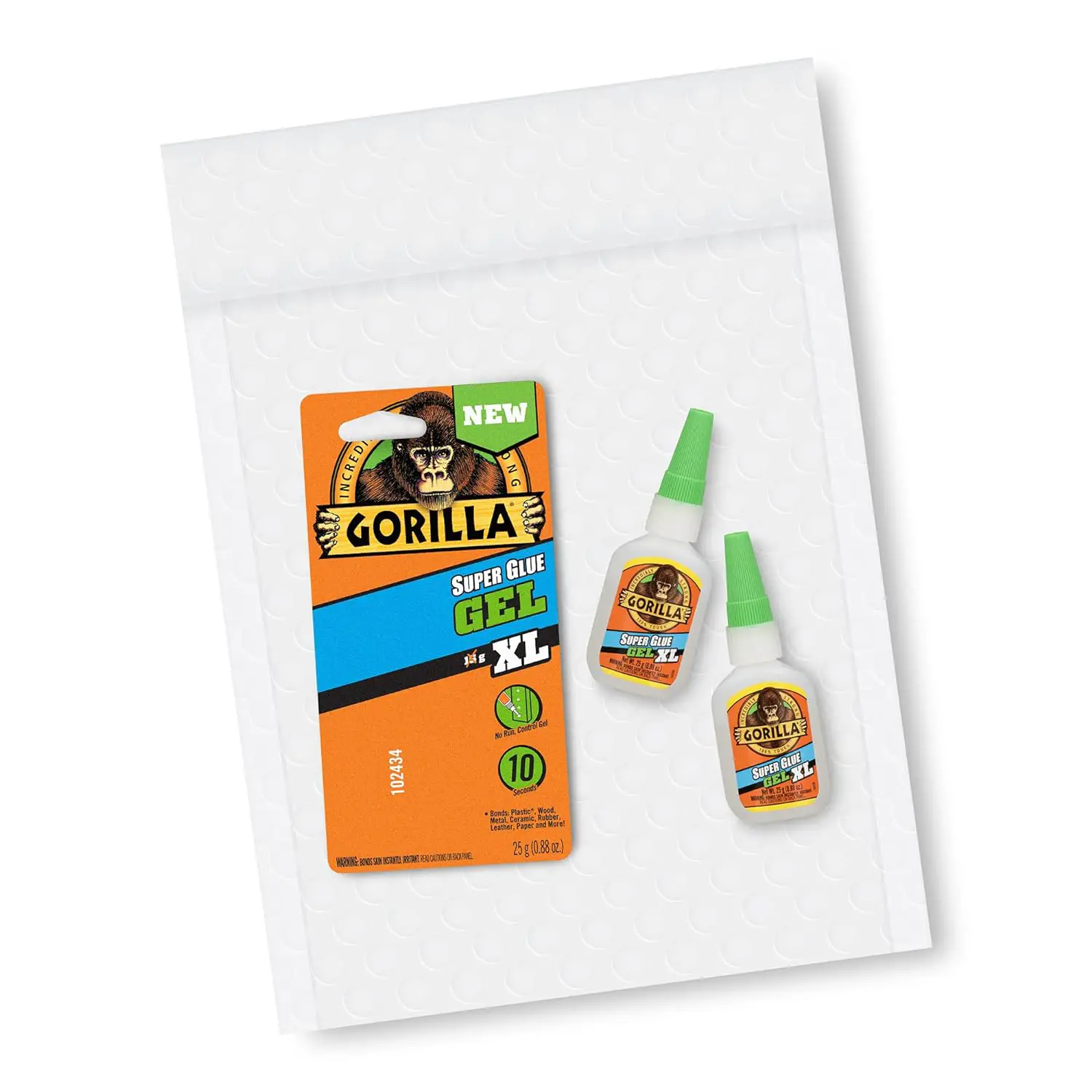 | Gorilla Super Glue Gel – for Broken Glass | Product Features | |
4 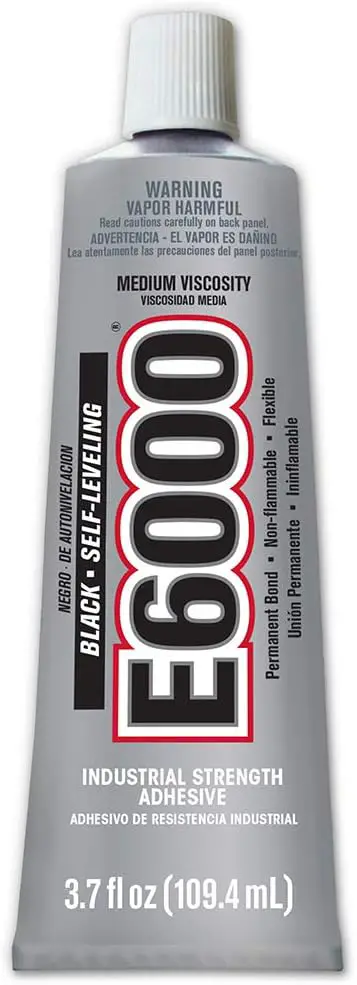 | E6000 Industrial Adhesive | Product Features | |
5 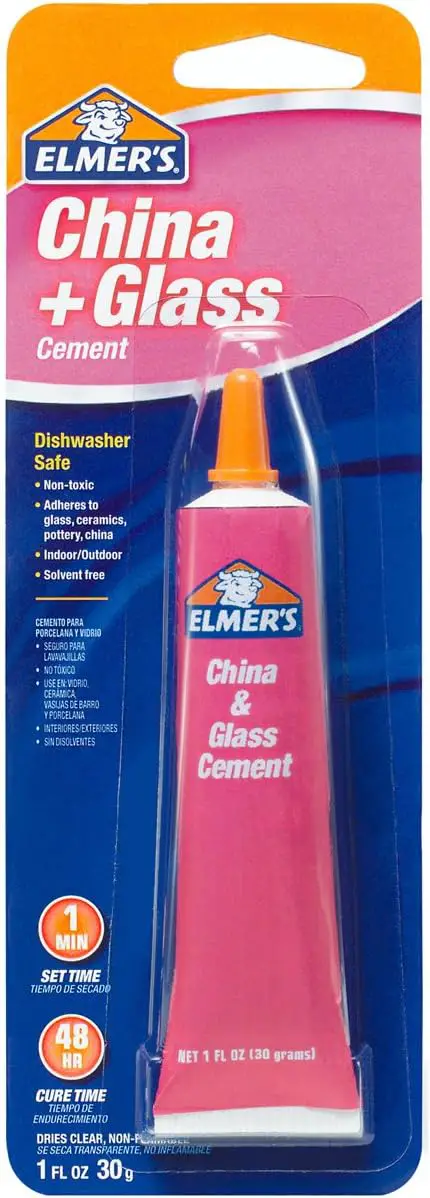 | Elmer’s China and Glass Cement | Product Features | |
6 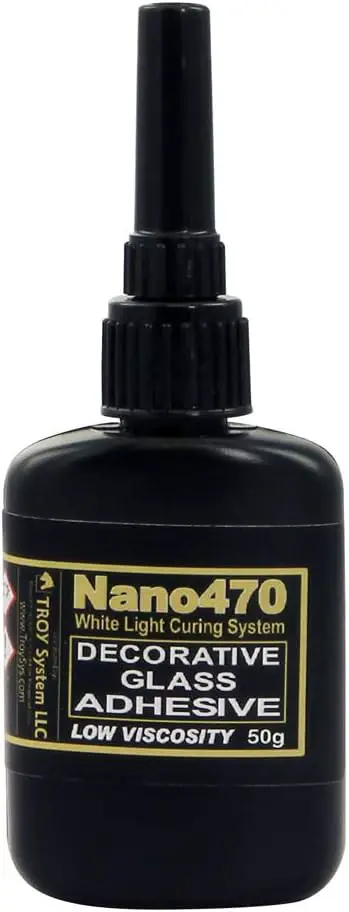 | Nano470 Construction Glass Glue – Waterproof Glue for Glass | Product Features | |
7 | J-B Weld 31310 Clear all purpose RTV Silicon Sealant | Product Features |

Loctite is one of the leading brands of adhesives in the world, providing glues for most surface types. This, of course, includes a glue product for glass. As our top pick, this product has an almost five-star rating and a host of overwhelmingly positive reviews. It is designed to bond glass to other glass and non-porous materials like metal and smooth plastics. The clear formula works well on clear glass, as well as tinted, opaque, and stained glasses, along with crystal. The formula dries crystal clear and sets in seconds, creating a firm, locked in place bond that can handle the regular wear and tear of use.
The tube is also designed to be mess-free and has a self-piercing tip to prevent spills or leaks. Additionally, the precision control tip allows for tidy application to even smaller spots or visible repairs, making it suitable for a wider range of applications. Once applied, the glue sets instantly without clamping, saving a lot of extra effort, and is dishwasher safe and waterproof. Some reviewers have even used it on cups with no issues!
PROS
Affordable
Fast bond
Waterproof and dishwasher safe
Types of Glue for Glass
When working to repair or create something made from glass, you need a strong lasting bond. This means doing your research when choosing an adhesive for glass is key in ensuring you are going to have the end result you desire. When working with glass surfaces, you want to find something that will give you a clear, seamless look while holding the piece in place.
Most people, for this, use a superglue or a similar product. Superglue works extremely well on glass surfaces, is affordable, and is waterproof, and generally can handle a lot of use and abuse. That being said, you can also use butyl compound, epoxy glass glue, and UV curable glass glue for this type of application.
Butyl Compound
All types of glue have pros and cons. Butyl Compound, for example, is quick and easy to apply but does not provide the strongest bond and leaves room for failure.
Cyanoacrylate Glass Glue
Superglue, also known as cyanoacrylate glass glue, creates a permanent bond, especially when bonding glass to glass, and works extremely well but can be tricky to work with if you make mistakes. While superglue is designed to be a clear glue for glass, it can become muddled if you have to move it around too much, making glued areas more apparent.
Epoxy Glass Glue
Epoxies can be messy and expensive but provide an extremely hard, firm bond and are one of the strongest glue for glass options available and will work well as a heat resistant glue for glass due to the nature of the bond once it is cured.
UV Curable Glass Glue
Similar in nature to Epoxy Glass Glue, a UV curable glass glue will work well to provide a very firm bond but can be tricky to use and, if not cured properly, could potentially not fully set.
At the end of the day, which you decide upon is entirely going to be based on your preferences and your own skill level and experience working with adhesive products.
How to Glue Glass
Regardless of which type of glass or glue you are working with, you will likely have to follow roughly the same steps. First, you need to clean the glass. Wipe it down well and remove any debris or residue from the surface. Once this is completed, try to sand or abrade the glass slightly to give the glue something to latch onto. Perfectly smooth surfaces will not adhere as well and will increase the risk of the bond failing so while not required, this step is extremely recommended if possible. Wipe away any dust that is kicked up from the process.
Once you have prepped the surface, apply the glue per the instructions on the packaging of the product, and let it dry for the desired amount of time. Check the bond and ensure it is even and how it should be. Once you are satisfied, you are all set; simply wipe the area down.
Safety Precautions
While working with glues, you have to be careful to follow the recommended safety measures of the product. Most adhesives you will be using in an application involving glass will not be a nontoxic glass glue. This means it could potentially pose an irritation risk to your skin, eyes, mouth, and internal organs if ingested. Be careful and use protective gear where applicable. Read all packaging inserts thoroughly to ensure you are prepared should an accident happen, as well.
Also, these glues are usually very flammable so avoid open flames.
Glue for Glass – Buying Guide
Before you go out and start buying any kind of glass glue, here we have some tips for you on how to glue glass to various other materials, as well as a bunch of other information too.
Glue glass to glass
When it comes to the best glue to use on glass to glass, we would recommend Nano470 Construction Glass Glue. Below we have a couple of videos with some great tips on how to glue glass to glass with ease and in a safe way.
Glue glass to metal
Gluing glass to metal can be difficult, but it is doable. In fact, for the best glue for glass to metal, we would also recommend Nano470 Construction Glass Glue, as it is simply one of the very best options out there. Below we have a couple of videos on how to glue glass to metal easily and safely.
Glue glass to plastic
Gluing glass to plastic is generally quite easy, but it does need to be done right, and you do need the right product. For the best glue for glass to plastic, we would recommend E6000 Industrial Strength Adhesive. Below, we have included a couple of helpful videos on how to glue glass to plastic.
Glue glass to wood
Gluing glass to wood is not easy, mainly because it requires glue that can bond with both porous and non-porous materials. Wood is porous and glass is usually not. For this purpose, for the best glue for glass to wood, we would recommend E6000 Industrial Strength Adhesive, as it appears to be a rather perfect fit. Below, we have included a video on how to glue glass to wood.
Using Glass Glue – Some Safety Tips
- Before you get started with any kind of gluing, let’s go over some important safety tips to keep you safe.
- If you are using the glue for dishes and glasses, always read the details of the specific glue in question, specifically if it is food safe or not.
- It is always a good idea to wear gloves when working with glass glue. Some glues, like super glue, bond nearly instantly and they will bond to skin.
- If necessary, wear goggles to prevent any adhesive from getting into your eyes.
- Wear old clothing when working with any sort of glue, as most glues will ruin clothing.
What to Look for in Glue for Glass
Before you go out any buy any glue for glass, or any glue at all, there are a few things which you should be aware of. Right now, we want to take you through the most important purchasing factors to pay attention to when deciding on what glue to use on glass.
Specific Application
When looking for something like glass repair glue, you do want to pay attention to the product in terms of the specific application and the materials which it can be used for. First, figure out whether you are looking to make crafts, repair an outdoor table, glue together a wine glass, or whatever else.
You then also need to take into account what materials you will be working with. Some glues like this are just for glass to glass bonding, while others may work for a variety of materials.
Drying and Curing Time
The next thing you should look out for is how long the epoxy glass glue takes to dry and cure. Some products like super glue may dry and cure totally within seconds or minutes. Generally speaking, the products which form very strong and long lasting bonds may take longer to dry and to cure totally.
Clamping
A very important aspect to take into account here is whether or not you need to clamp the glass after applying the glue, or if any kind of pressure needs to be applied. For the most part, seeing as glass is fragile, you do want to look for a product that does not require clamping.
Bond Strength
When it comes to glue for glass, something else to consider is the bond strength. If you are making small crafts, you won’t need great bond strength, at least, it’s not as important as when repairing glass items like wine glasses. The more pressure and weight the item in question needs to be able to handle, the stronger the bond needs to be.
Waterproof
Any glue for glass worth its money should always be waterproof, this is especially the case for dishes and for any outdoor application. Never get glue that can be dissolved by water.
Temperature Resistance
When it comes to what glue works best on glass, any type of heat and cold resistant epoxy is one to keep an eye out on. If you live in a climate with extreme temperatures, this is vital to look for.
Dishwasher Safe
Related to the last two points, any glue for glass, if you plan on using it for dishes, should be dishwasher safe, which means being able to withstand extreme heat and water.
Toxicity & Food Safety
Speaking of dishes, if you plan on repairing anything to do with food, be sure that the glue is food safe and non-toxic once dry.
Indoor & Outdoor Use
If you plan on using the glue for outdoor use, be sure it is actually intended for outdoor use. Extreme weather can quickly degrade and dissolve low quality glue.
Glue for Glass FAQ
Type of glue to use on glass
There are various types of glue that can be used on glass including epoxies, superglues, glass cements, and industrial adhesives too. Simply put, as long as the glue in question says it can be used for glass, then you should be good to go.
Can Gorilla Glue be used on glass?
There are actually well over a dozen different products from the Gorilla Glue brand name, with many being ideal for glass gluing, such as the one which we reviewed today.
Can you use super glue on glass?
Yes, most types of super glue should work fine with glass, but that said, be sure to read the label of the product in question first. It’s better to be safe than sorry.
Can you use hot glue on glass?
Hot glue will adhere to glass, but that said, the bond won’t be as strong as with actual glass glue.
Conclusion
The bottom line is that you do need to look for a variety of features so you actually get the best glue for glass, specifically for the application at hand. That said, as you can see, there are plenty of great epoxies and adhesives out there. Just consider what exactly you need it for, and then go from there.

